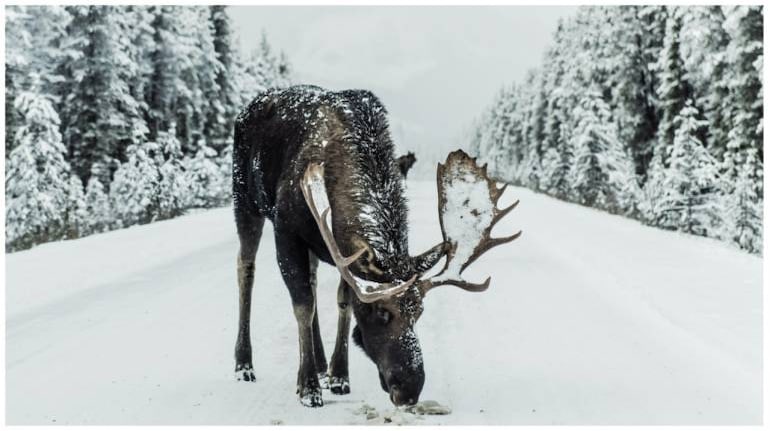
Moose are found licking cars to get salt in Canada in winters. (Representational)
Moose in Canada are making headlines for an unusual behaviour – licking cars on highways. Parks Canada experts have issued a stern warning to motorists, urging them not to stop and let moose indulge in this peculiar habit, as it poses risks both to the massive mammals and the drivers navigating through the Great White North.
Reports from Jasper National Park have brought attention to moose approaching vehicles for a taste of the salt accumulated on the asphalt. Tracy McKay from Parks Canada told CBC, “It’s okay to laugh at it, as long as people drive responsibly and do what’s best for the wildlife.”
With an estimated 830,000 moose in Canada, these encounters are becoming more frequent, raising concerns about the safety of both wildlife and motorists.
Moose, the largest species of deer, stand up to 7 feet tall at the shoulder and over 10 feet tall at head height. The unusual behaviour stems from their need for sodium, found in the gritting salt spread on highways.
This behaviour is also their instinct to supplement their diet with minerals not readily available in their natural environment.
As cars pass, the salt accumulates on their surfaces, attracting moose to also lick vehicles for a salty treat. This, however, exposes them to the dangers of increased proximity to roads, resulting in around four moose fatalities annually in the Jasper National Park area.
To address the issue, Parks Canada has considered replacing road salt with sand. However, moose still gather to lick the sand, which contains small amounts of salt.
The dilemma persists, and drivers are now advised to navigate around moose slowly, especially during darker hours. Moose-vehicle collisions can be catastrophic, with data showing 236 deaths between 2000 and 2014 in such incidents across Canada.
Story continues below Advertisement